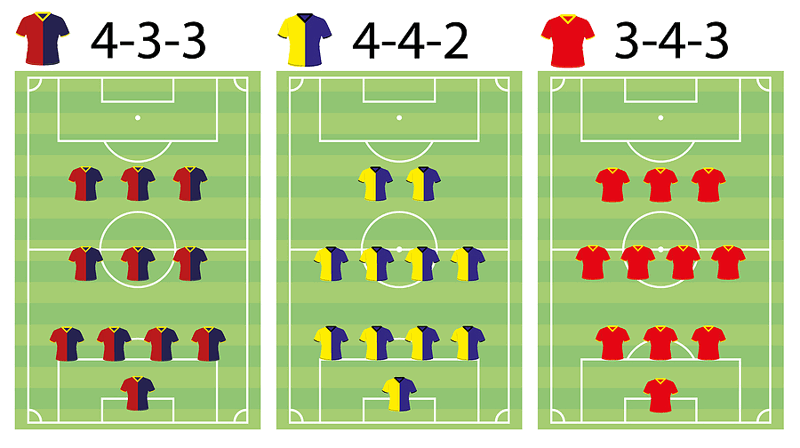The Evolution of the Premier League: Is Another Radical Change Needed?
The Premier League, known for its high-octane football and global appeal, has become a bastion of world-class talent and intense competition since its inception in 1992. However, with the ever-evolving landscape of modern sports, there arises a question: Is the Premier League due for another revolutionary transformation to ensure its sustainability and growth?

A Brief History of the Premier League
The Premier League was formed in 1992, marking a significant overhaul in English football. This dramatic shift was driven by the need to modernize the game, improve television revenue, and enhance the overall quality of football. The decision to break away from the Football League was controversial, yet it set the stage for unprecedented growth in viewership and financial success.
The formation of the Premier League coincided with lucrative television rights deals, which transformed the way football was consumed. Sky Sports, a new player in the broadcasting industry at the time, revolutionized football coverage with live broadcasting, expert analysis, and high-definition replays, turning the league into a global phenomenon.
The Current State of the Premier League
Fast forward to today, and the Premier League stands as one of the most lucrative and popular sports leagues globally. Clubs like Manchester United, Liverpool, and Chelsea have become household names, boasting massive fan bases worldwide. The league's ability to attract top-tier talent from around the globe has only augmented its appeal.
However, this success has not come without its challenges. The financial disparity between clubs, increasing ticket prices, and the impact of global broadcasting have raised concerns about the future trajectory of the league. With clubs like Manchester City and Chelsea benefitting from substantial financial backing, questions about financial fairness and competitive balance have become prevalent.
The Premier League's global reach has also led to a packed schedule, with clubs participating in various domestic and international competitions. This intense schedule can strain players, leading to injuries and affecting the quality of football on display.
Do We Need Another Radical Change?
The question of whether the Premier League needs another radical transformation is multifaceted. To answer it, we must consider several factors:
-
Financial Fairness and Sustainability: The disparity in financial resources between clubs has led to calls for reforms. The introduction of financial fair play regulations aims to ensure clubs operate within their means, but enforcement remains a challenge. A more equitable distribution of television revenue and financial oversight might be necessary to maintain competitiveness.
-
Globalization vs. Local Identity: While globalization has expanded the league's fan base, it has also diluted local identities. Clubs are increasingly seen as global brands rather than community institutions. Balancing global appeal with local roots could be crucial for the league's long-term success.
-
Player Welfare and Schedule Management: Managing the congested schedule is critical for player welfare. Proposals such as reducing the number of teams or altering cup competitions could alleviate the burden on players, ensuring they can perform at their best throughout the season.
-
Technological Integration: Embracing technology could further enhance the viewing experience. Innovations like virtual reality, augmented reality, and advanced analytics could provide fans with deeper insights and immersive experiences, making football more accessible and engaging.
Perspectives from the Football Community
A variety of opinions exist within the football community regarding potential changes to the Premier League:
-
Clubs and Managers: Club managers and officials have differing views on financial regulations and schedule management. While some advocate for stricter financial oversight, others emphasize the need for flexibility to compete on the international stage.
-
Fans: Fans are divided on the issue of globalization. While some enjoy the increased access to international talent and matches, others lament the loss of traditional club identities and local rivalries.
-
Players: Players have voiced concerns over the demanding schedule and its impact on their health and performance. Advocating for more rest periods and better player welfare policies could address these issues.
What Lies Ahead?
The future of the Premier League hinges on its ability to adapt to changing circumstances while preserving the essence of what makes it special. Here are some potential paths the league could take:
-
Revisiting Financial Structures: Implementing more robust financial regulations and revenue-sharing models could help level the playing field, ensuring all clubs have a fair chance at success.
-
Enhancing Fan Engagement: Leveraging technology to enhance fan engagement, both in-stadium and digitally, could create a more inclusive and interactive experience for supporters worldwide.
-
International Expansion: Exploring opportunities for international expansion, such as hosting matches abroad or establishing partnerships with foreign leagues, could further solidify the Premier League's global footprint.
-
Sustainability Initiatives: Emphasizing sustainability through eco-friendly stadium practices and community engagement could align the league with broader societal goals, enhancing its public image and appeal.

Conclusion
As the Premier League continues to captivate audiences worldwide, the question of whether another radical change is needed remains open for debate. The league's ability to adapt and innovate will be crucial in maintaining its status as the pinnacle of English football. By addressing financial disparities, embracing technology, and prioritizing player welfare, the Premier League can ensure its continued growth and success in the years to come.
In an era where sports are constantly evolving, the Premier League stands at a crossroads. The choices made today will shape its legacy for future generations, determining whether it remains the standard-bearer for football excellence or becomes a relic of the past.